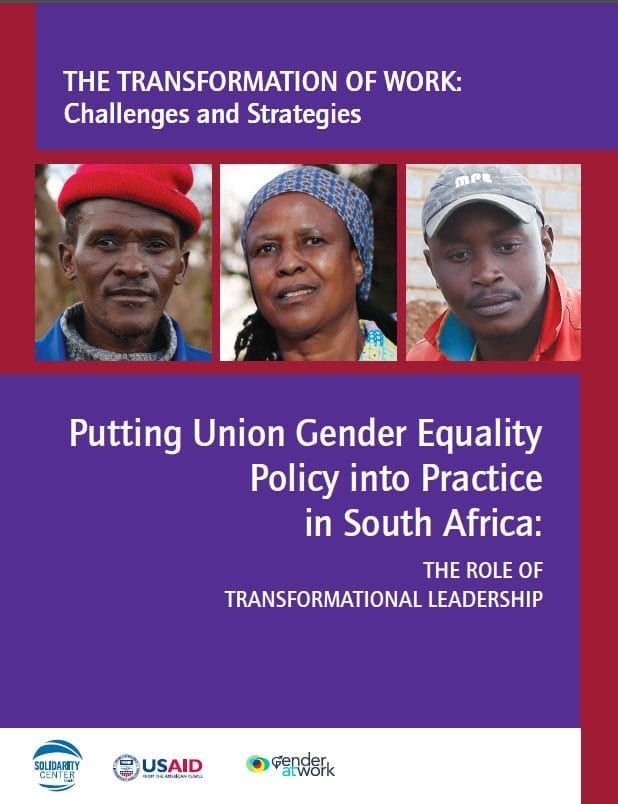
Oct 27, 2015
Unions are key drivers advancing gender equality. Yet in many countries around the world, there is a disconnect between labor union policy and practice in transforming gender inequalities within trade unions. Through the lens of the South African union movement, this report explores the disconnect and examines new strategies for closing the gap between policy and practice.
Download here.
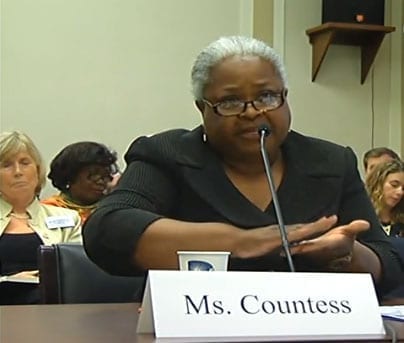
Jun 4, 2015
Zimbabwe’s economy is in deep decline, making it harder for average Zimbabweans to work and live, and leaving them less and less confident in their future, according to Solidarity Center Regional Program Director for Africa Imani Countess, in testimony yesterday on Capitol Hill.
“Most workers earn salaries far below the poverty level, and many workers—even in the formal sector—go for months without receiving their wages,” Countess said. (Read her full testimony here.)
Countess was among three panelists speaking at a hearing on the Future of U.S.-Zimbabwe Relations, held by the U.S. House Subcommittee on Africa, Global Health, Global Human Rights, and International Organizations.
She cited a recent AfroBarometer survey of 2,400 randomly selected participants that details the extent of Zimbabwe’s economic crisis:
- 33 percent of respondents in urban areas had gone without food at least once this year.
- 52 percent in urban areas had gone without medical care.
- 59 percent in urban areas had gone without water.
- Nearly two-thirds say “unemployment is the biggest problem government should address.”
According to the Zimbabwe Congress of Trade Unions, Countess said, “most human rights defenders, like trade unions and civic organizations have been severely weakened due to economic decline as well as brain drain.”
Countess told lawmakers that Zimbabwe labor unions and workers are looking for U.S. policy that includes strong support for human rights defenders and community-based, mass organizations that work to educate and organize citizens around a rights-based culture. Zimbabwe unions also seek U.S. support to provide stronger protection for informal economy workers, that in turn, can positively influence the flow of economic migrants.
Other panelists included Shannon Smith, U.S. State Department deputy assistant secretary for the Bureau of African Affairs and Ben Freeth, Mike Campbell Foundation executive director.
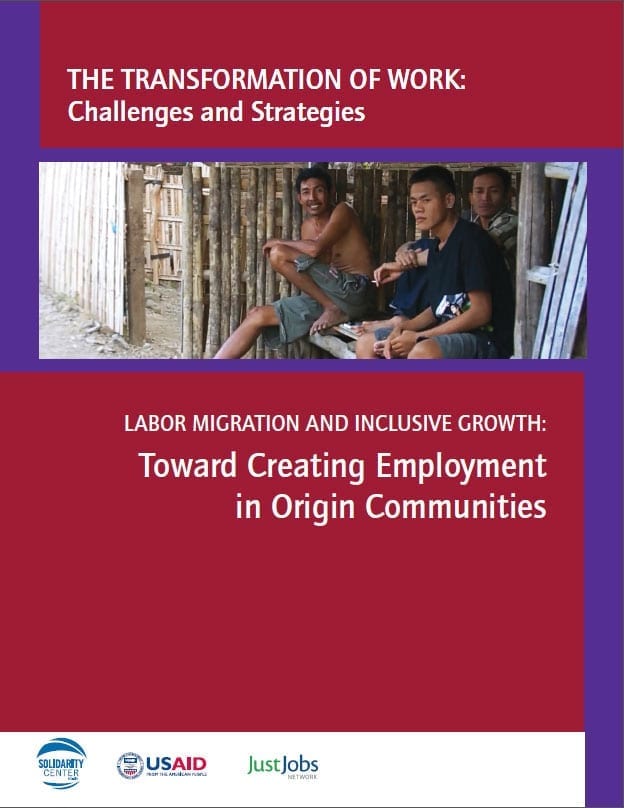
May 22, 2015
This paper investigates the intersection of labor migration and the inclusive growth agenda, and seeks to recommend policies so governments of origin countries can, in part, expand labor migration’s positive impacts by making migrant workers agents in promoting and realizing an inclusive growth agenda in their origin communities.
Download here.
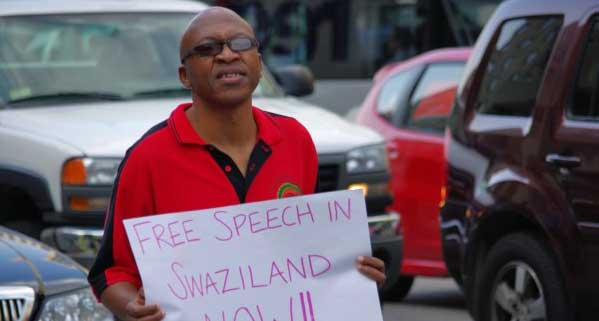
May 16, 2015
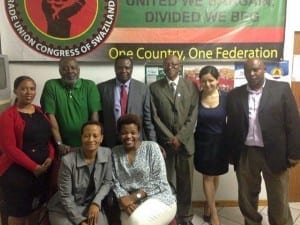
AFL-CIO Metropolitan Washington Labor Council President Jos Williams (green shirt) is part of an international union delegation to Swaziland. Credit: STAWU
An international delegation of union leaders traveling in Swaziland is calling on the government to guarantee the rights of workers to freely form unions and exercise freedom of speech and assembly, and says repressive legislation used by police against union activities still has not been addressed by Parliament, even as the government continues to imprison human rights activists for exercising their right to freedom of speech.
Led by Wellington Chibebe, International Trade Union Confederation (ITUC) deputy general secretary, the fact-finding group is looking into the ongoing government repression directed at Swazi union leaders and human rights proponents, and plans to issue a report to the ITUC and to several members of the European Parliament by the end of May.
Just days before the delegation arrived on May 14, the Swaziland government announced it had registered the Trade Union Congress of Swaziland (TUCOSWA), an action it has refused to take for the past three years.
But delegation members say they are not celebrating the action because the government “did not do more than it was supposed to do,” says Jos Williams, president of the AFL-CIO Metropolitan Washington Labor Council, speaking from Swaziland. “We do not see that as a victory of any kind.” Williams is among a six-member delegation that includes a representative from the Congress of South Africa Trade Unions (COSATU).
In fact, two days after the government announced TUCOSWA’s official registration, police massed outside a meeting of TUCOSWA affiliates in a show of force, according to TUCOSWA Secretary-General Vincent Ncongwane.
“All that has been told (by the government) to the world is just playing to the public gallery,” Ncongwane says, while the reality of repression in a monarchical government that outlaws political parties continues. Twice this year, police have broken up TUCOSWA union meetings, injuring a union leader in the process. On May Day, brave union members held rallies despite a government ban on public gatherings.
The ITUC is demanding the government repeal anti-terrorism laws that enable it to imprison union leaders and others who call for democracy; provide full recognition of union activities in accordance with international laws; and support freedom of speech, assembly and association.
“The government must meet the demands the ITUC delegation has made if the ITUC is to give a favorable report by the end of the month,” Williams says. “From my standpoint, the actions of the government have not been very encouraging. Yes, they have recognized the union, but regarding the other demands we made, there has been no response.”
Delegation members also sought to visit political prisoners, some of whom have been held for two years. So far, says Williams, they “have gotten the run-around” in efforts “to see our comrades in jail and look at the conditions.” (You can sign a LaborStart petition demanding their release. If you Tweet, use the hashtag #SwaziJustice.)
In June 2014, the U.S. government took the rare step of suspending African Growth and Opportunity Act (AGOA) trade benefits for Swaziland, citing the Swazi government’s systematic violations of fundamental worker rights, including refusal to legally recognize TUCOSWA. In addition, the 2014 U.S. State Department human rights report cited serious human rights violations in Swaziland, including arbitrary or unlawful killings by the government or its agents and severely restricted freedom of assembly, including violence against protestors.
Given the level of harassment and repression, Williams says he “came here seeking to encourage” union leaders, but instead found that “they are standing tall in the face of adversity.
“It is rewarding to me as a trade unionist to have drawn strength from these individuals.”
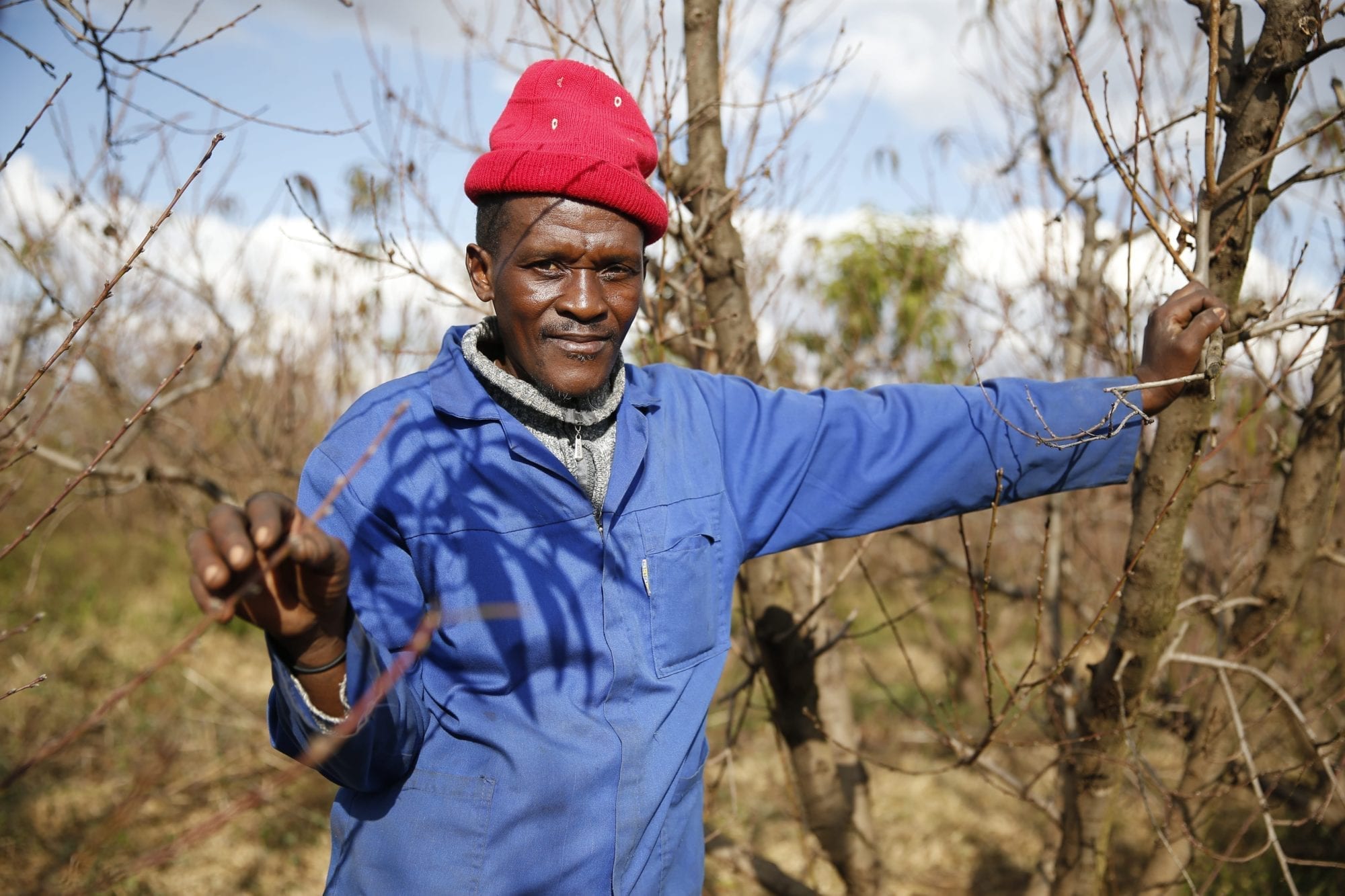
Apr 29, 2015
As the Senate takes up reauthorization of the African Growth and Opportunity Act (AGOA), passed in 2000, the bill should include provisions strengthening worker rights, human rights and mandating resource transparency, says Cathy Feingold, director of the AFL-CIO International Department.
Testifying before the Senate Subcommittee on Africa and Global Health Policy last week, Feingold said that the AFL-CIO “strongly supports reauthorization of AGOA,” but it must be strengthened by including provisions to abolish the worst forms of child labor. AGOA also should include a democracy clause that allows trade benefits be limited, suspended or withdrawn when violated, she said, “because “workers are unlikely to freely exercise their rights under a government that fails to respect their political rights.”
(Read Feingold’s full testimony.)
During the 2014 U.S.-Africa Leaders Summit, the AFL-CIO hosted a delegation of 38 union leaders and worker rights advocates from sub-Saharan Africa who support AGOA’s reauthorization but argued for improving it.
As the report by the AFL-CIO and Solidarity Center points out, in the 15 years AGOA has been in effect, it has increased exports from sub-Saharan Africa but has not spurred broader development or fostered a robust and equitable economic system.
Following the Summit, the AFL-CIO and the International Trade Union Confederation’s Africa Regional Office issued a joint partnership statement focused on inclusive economic growth, stating that workers must benefit from job creation and access to financial stability, education, health care and social protection.






